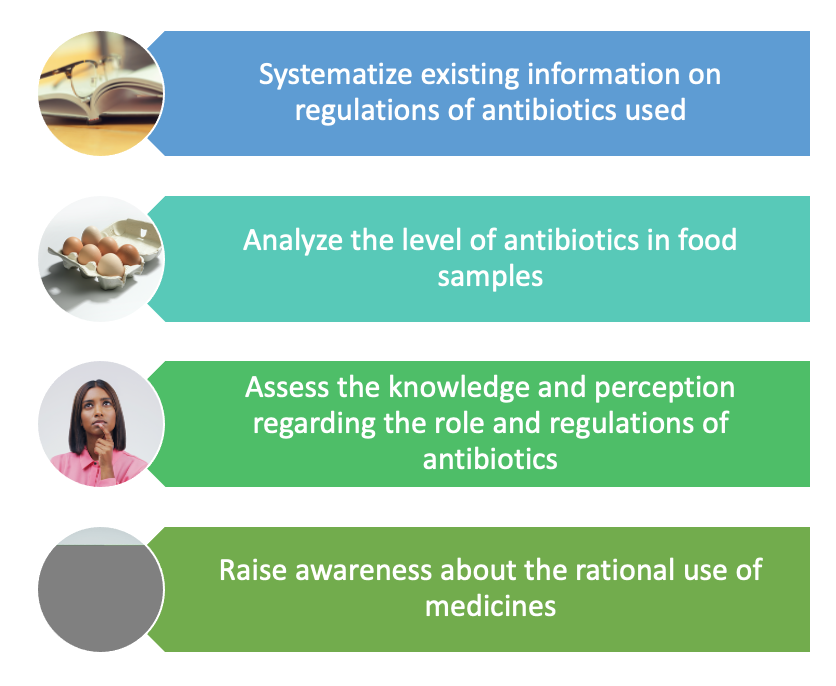
"ANTIBIOtic RESidues in food: a comparative analysis in Bolivia, Italy, Ghana, and Nepal" ANTIBIOtic RESidues is one of the selected One Health Funds projects for 2023.
Antimicrobial resistance is a global phenomenon aggravated in recent decades by the inappropriate use of antimicrobials in human and veterinary medicine, the lack of prevention and control measures for infections associated with health care, and the limited development of new antimicrobials. It causes an increase in mortality, morbidity, and health spending. In this sense, the irrational use of antimicrobials in food-producing animals can reduce the effectiveness of those antibiotics in treating animal and human diseases. It also represents an additional risk for antimicrobial resistance by transferring antibiotics to food for human consumption and generating a new source of exposure. The residual antibiotics in food have been related to some adverse effects on human health, including allergic reactions, disruption of digestive system function, and chronic toxic effects from prolonged low-level exposure. It also represents a risk for the animals by jeopardizing the effectiveness of the necessary treatments.
Considering that, the project seeks to generate evidence regarding progress at the local level in regulatory issues and regarding the presence of antibiotics in food to raise awareness about the proper use of antibiotics in animals and humans and promote good practices. In this way, we aim to reduce the risk associated with antimicrobial resistance. For that, we will work on four objectives:

This project is implemented by CIHLMU alumni: Maria Teresa Solis Soto (Bolivia), Francesco Nicoli (Italia), Deepak Paudel (Nepal), and Gloria Ivy Mensah (Ghana). Additionally, alliances will be established in each country with different institutions involved in this issue, including food safety, health department, and agricultural and livestock service areas. In this way, other organizations and interest groups are welcome to collaborate on the project!

